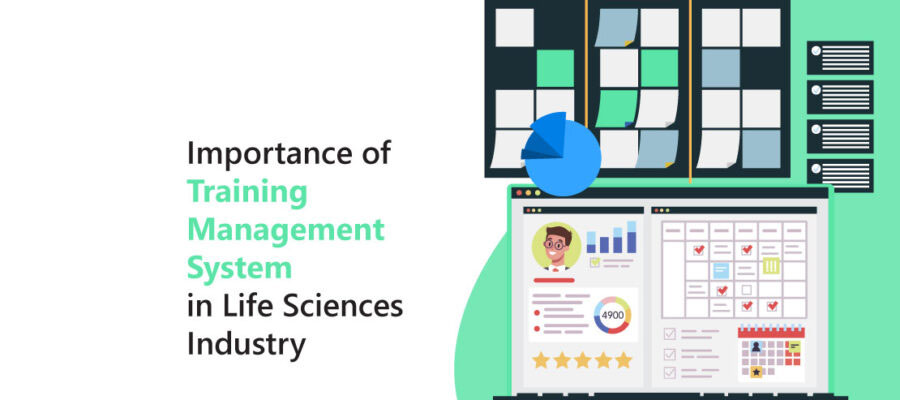Importance of a Training Management System in Life Sciences Industry

Article Context:
Training Management System
Training management system plays a vital role in employee training and compliance and is considered to be critical in most organizations and industries. Recently, the TMS (training management system) has gained importance with the changing processes and procedures. Organizations are looking for looking out for ways to train employees with the current and constant advances with the changing requirements and to improve employee’s working abilities in compliance with the industry regulations and standards.
The TMS allows the employees to stay updated with the current and constant changes in processes and procedures. Also, it helps them to improvise their skillset providing continuous learning opportunities to enhance their skill set. But with a paper–based system, organizations trying to streamline the training process is impossible to be efficient. Therefore, leveraging a TMS for employee training is the best solution for any conventional method.
As the TMS allows the employees to complete the training without disrupting their work routine. Below are highlighted the importance of TMS in life science organizations and how industries can benefit from it.
Flexibility and Configurability
The most significant benefit of TMS – is flexible training as the training requirements like on-job training are demanding, and sometimes it is challenging for the employees to attend the scheduled sessions in person. The TMS allows the employees to take up the training process from anywhere, enabling them to read and understand the training material at their own pace. Also, it will allow the trainer to assign assessments, assess their skillsets and comprehension of the work methods, and compare the employee’s achievements.
Training Management System allows document-led, external, and classroom-led training methods per the organization’s requirements.
Consistency and Knowledge Retention
Content consistency across the organization is essential. When organizations use sharing applications, it is difficult for the companies to say that the employees follow the latest updated document version or training material. The TMS centralizes the training materials on a single platform reducing the risk of losing important data and making it easier to create multiple training materials as required.
The TMS improves knowledge retention by extending the availability of engaging content that includes documents, audio files, videos, pdfs, images, etc., providing access based on the employee’s roles.
Tracks trainee progress and performance
TMS enables organizations to get a bird’s eye view of trainees’ learning progress. It ensures that they read and understood the concepts through assessment grades, helping them meet their performance milestones. Training Management System is built with an excellent reporting and analytics matrix that allows the organization to track the training requirements schedules and trainee progress and pinpoints when the trainee fails to complete the training in time and who excels in it. In addition, with the training status report, the organization can uncover in-progress and overdue training material just a click away.
Additionally, the TMS allows users to access only the approved and published training material, maintaining consistency across departments.
Up-to-date Compliance Regulations
TMS is a valuable tool for organizations to comply with current industry standard regulations. Continuous compliance updates and updating a process or procedural changes with the shop floor users or manufacturing employees can be tedious and time-consuming. However, with an efficient TMS in place, organizations can go easy with creating training material as per the regulations within minutes. As such, the trainees can always be aware of the latest process requisitions and changes concerning compliance rules avoiding costly penalties for the organization. In addition, the organization can ensure that every employee is on the same page with the company expectations, policies, roles and responsibilities, and work instructions that boost employee performance, increasing employee retention rates.
Cost–effective and Affordability
Compared to traditional training methods, TMS is a lot more cost-effective. Though it requires an initial investment, over time the expense will pay off. Getting the trainees trained via a training management system can save money that would be normally spent on in-person training, it also saves time and promotes more productivity by allowing multiple employees to be trained simultaneously from anywhere. In addition, training courses are completed much faster by workers than traditional ones, so both organizations and employees can benefit from them.
Overall, having an efficient and validated training management system and up-to-date current training is crucial for the life sciences industry. If your organization is looking for a cost-effective yet efficient system to optimize and streamline the training opportunities as well as meet 21 CFR Part 11 compliance then Training Management System is the best fit. To know more about our system, we are just an email away, please email us at sales@complianceg.com for a free demo.